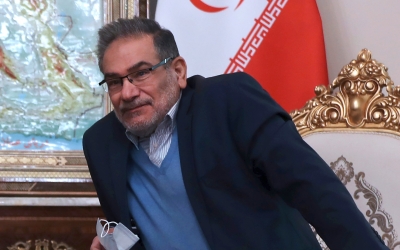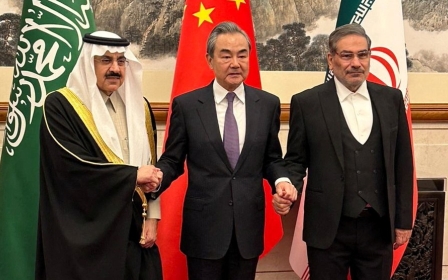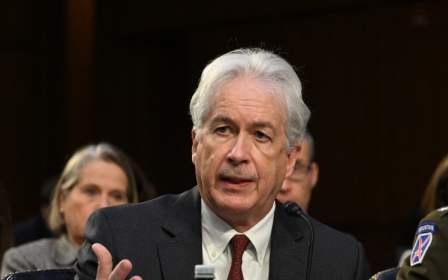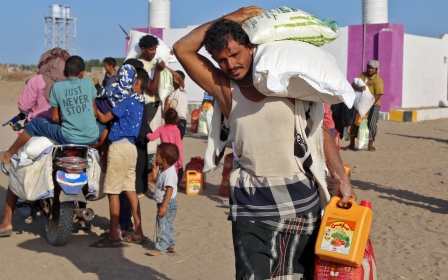Saudi officials to hold peace talks with Houthis in Yemeni capital: Report
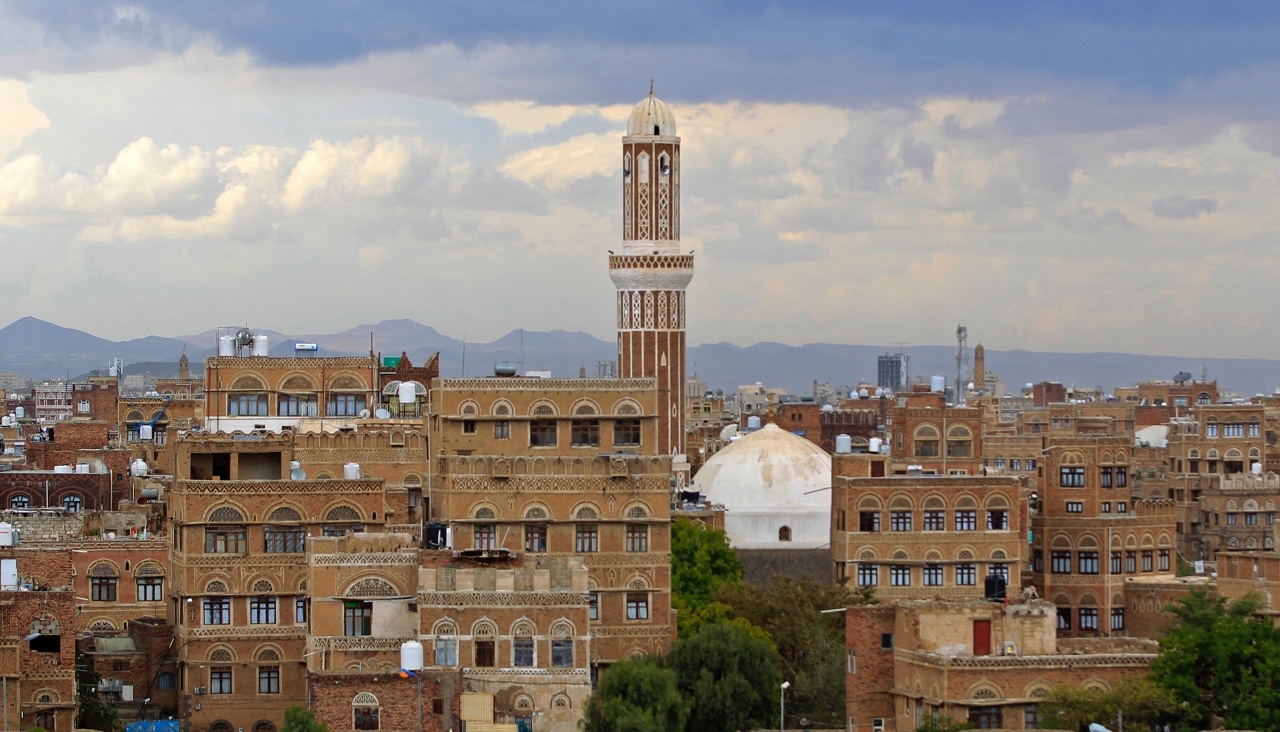
Saudi officials plan to travel to Yemen's capital Sanaa next week to discuss a permanent ceasefire with Houthi fighters, as momentum builds to deescalate tensions in regional hotspots.
The Saudi delegation will travel with officials from Oman and could announce a final Yemen peace deal before the 20 April Eid holiday marking the end of Ramadan, Reuters reported, citing sources familiar with the matter.
Oman has traditionally played a mediator role in Yemen, brokering prisoner swaps and back-channel negotiations between Riyadh and the Houthis.
Muscat is not a member of the Saudi-led coalition that entered into the war with the Houthis in 2015.
The Oman-mediated talks are one of several initiatives underway to end fighting that has killed hundreds of thousands and pushed the impoverished nation to the brink of famine.
A UN-brokered truce, which took effect in April 2022, collapsed in October, but fighting has largely subsided.
In January, Hans Grundberg, the United Nations special envoy for Yemen, said the prolonged period of peace had the potential to change the trajectory of the conflict.
Besides the Oman mediation, Saudi Arabia had been engaging in talks with Iran in Baghdad.
Timothy Lenderking, the US special envoy to Yemen, told MEE last year that the US was “encouraging” talks between the two foes as a way to address Saudi Arabia’s security concerns in Yemen.
Yemen descended into civil war in 2014, when Houthi rebels aligned with Iran seized the capital, Sanaa, forcing the internationally recognised government to flee to Saudi Arabia. Riyadh and a coalition of regional allies, chiefly the UAE, intervened in March 2015 to push the Houthis back.
'Security and stability'
UN reports have said that coalition air strikes have killed thousands of civilians, hitting homes and schools. Meanwhile, the Iran-aligned Houthis have launched missiles and drones at civilian infrastructure in Saudi Arabia and the UAE.
Despite seven years of brutal fighting, the coalition has failed to dislodge the Houthis, who control about 80 percent of the country’s population, along with major urban centres.
Saudi Arabia is searching for an exit from the war as it looks to pivot its focus towards its economy, capitalising on a windfall in oil revenue.
Last year, Yemen’s Saudi-backed president, Abd Rabbu Mansour Hadi, long seen as an obstacle to peace talks, resigned, reportedly under pressure from Riyadh. He was replaced by an eight-member presidential council, which Riyadh urged to negotiate with the Houthis. At the same time, the Saudis restarted their own direct talks with the rebels.
In a sign of progress, the Saudi-led coalition said on Thursday it would lift an eight-year-old blockade of imports going to Yemen’s southern ports.
Restrictions on commercial goods entering the Houthi-held western port of Hodeidah had already eased in February. The Yemeni government said on Thursday that commercial ships would be allowed to dock directly in southern ports, including Aden, and all goods would be cleared, with some exceptions.
The Saudi visit to Sanaa comes amid a broader reconciliation between Riyadh and Tehran brokered by China.
On Thursday, the top diplomats from the two countries met in Beijing where they pledged to bring "security and stability" to the region.
Yemen is one of the key metrics of the China-brokered reconciliation deal. An MEE correspondent in Tehran reported in March that Iran’s Supreme Leader Ayatollah Ali Khamenei’s office promised to stop arming the Houthis as part of the reconciliation deal.
Middle East Eye propose une couverture et une analyse indépendantes et incomparables du Moyen-Orient, de l’Afrique du Nord et d’autres régions du monde. Pour en savoir plus sur la reprise de ce contenu et les frais qui s’appliquent, veuillez remplir ce formulaire [en anglais]. Pour en savoir plus sur MEE, cliquez ici [en anglais].


